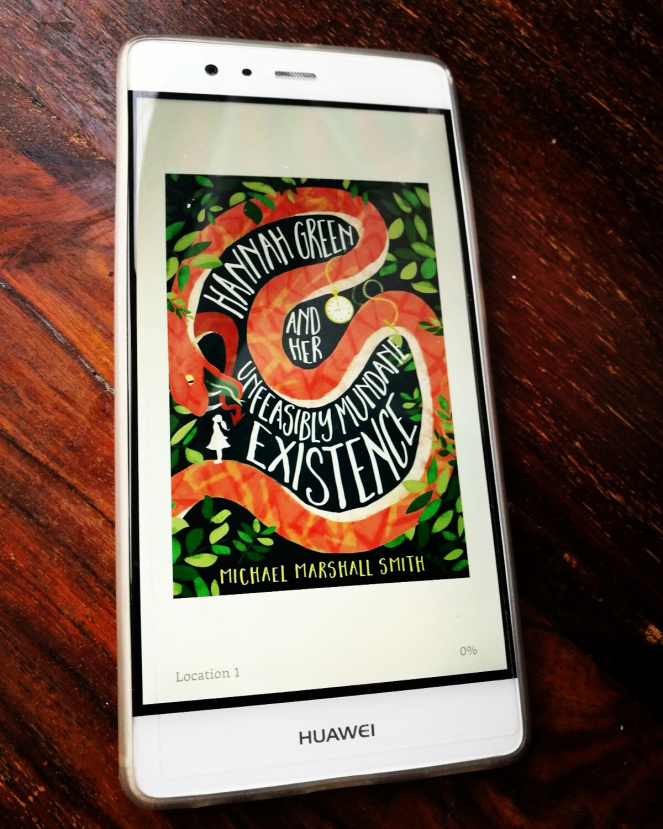Over the last few days I read Ralph Waldo Emmerson’s essay “Self Reliance“. I was attracted to it by its title and also because, I am ashamed to say, I had never read any of his work. Although I enjoyed it greatly I have reservations about recommending this book to others as I must confess that it is now rather dated. The language to the modern reader is rather inaccessible and many aspects of the vocabulary seem rather archaic. This having been said, I still think that the essay is worthy of your time and effort.
It may seem a little counter-intuitive but I have found that reading classic works like this on an e-reading platform, such as the kindle, is very valuable. It may, at first, seem unusual to suggest using our modern gadgets to access the literature of the ancients but there are two reasons I would recommend this.
Firstly, many of these classics are no longer hampered by copyright issues and are therefore available either freely or at very low prices. While there are relatively cheap editions of the classics available in the traditional paper format (Dover Thrift Editions for example) but there is still an upfront cost however modest. This can be off-putting when taking a chance on literature which may prove dated and difficult to read. E-books of the classics are usually available free of charge and this makes it much easier to take the chance and try something we might otherwise have missed. (The Project Gutenberg site is an excellent place to start looking for the classics, in a variety of e-book formats, epub, kindle, html and plain text.) In this manner, there is a whole world of literature and thought available to us at very little expense. These works have already been filtered and selected as they have stood the test of time : these are the works which were not fickle, nor were they unimportant, and the works which still talk to us and our predicaments thousands of years after they were written.
Secondly, I have found that when I tackle these books I am much less cultured than were the original readers of these books. Though I consider myself well educated and fairly knowledgeable it is clear that a wider, better awareness of The Classics was presumed by these writers. Indeed, it was previously felt that a study of the classics, and the humanities, was one of the cornerstones of a well rounded education. I do not have this so many references are lost on me. For example, Emmerson bemoans that he has “no Lethe” to help him in this essay. This reference, like many others, initially meant nothing to me until, with the help of wikipedia on the e-reader, I discovered that the Lethe was the river of forgetfulness and oblivion which flowed in Hades. With this knowledge everything made sense.
Though I was drawn to this essay by its title; this is an essay on personal, mental or spiritual self-reliance, not self-reliance in the quotidian, material sense. This is an essay promoting individualism and self-reliance of the soul. In this he urges us to be true to our own thoughts and opinions, not to be shackled by unnecessary attempts to be consistent :-
A foolish consistency is the hobgoblin of little minds, adored by little statesmen and philosophers and divines. With consistency a great soul has simply nothing to do. He may as well concern himself with his shadow on the wall. Speak what you think now in hard words, and to-morrow speak what to-morrow thinks in hard words again, though it contradict every thing you said to-day. “Ah, so you shall be sure to be misunderstood.” Is it so bad, then, to be misunderstood? .. .. To be great is to be misunderstood.
He reminds us that institutions are the consequence of individual’s thoughts :-
An institution is the lengthened shadow of one man; as, Monachism, of the Hermit Antony; the Reformation, of Luther; Quakerism, of Fox; Methodism, of Wesley; Abolition, of Clarkson.
and that change likewise starts with the individual :-
Every revolution was first a thought in one man’s mind, and when the same thought occurs to another man, it is the key to that era. Every reform was once a private opinion, and when it shall be a private opinion again, it will solve the problem of the age.
He is clearly of the opinion that discontentment and unhappiness arise from failures in self-reliance and dishonesty with oneself. It is an interesting essay which, I’d venture, gives a useful other strand to aiming for autarky or self-sufficiency – a valuable mental self reliance which helps when one has to cope with adversity or hardship. Those looking for advice on how to be more self-contained and resilient will find much of value in this short essay.
Returning the more prosaic aspects of self-reliance; I found that I needed to deal with some poor hedges and trees this winter. These were heavy with ivy and I needed to co-opt the goats into the job. At this time of year there is little greenery for the sheep and goats to browse and they are therefore very grateful to see the leaves of the holly, ivy and brambles. I find when clearing ivy it is useful to let the goats at it first. They strip every green leaf and make the movement of the branches much lighter and easier. Also, at this time of year, it is useful winter fodder and saves on out hay usage (both for the goats and sheep). In this way we make a crop out of weed.
The Billy goat and nannies also provide pleasant company during what is an annoying job. I like to see them eating and enjoy knowing that I have saved some hay rations (especially as we had a poor hay harvest this year). I feel rather guilty that we don’t make more use of the ivy wood as it feels wasteful to throw it away. It does not burn green and is quite difficult to stack , because of the differing shapes, to dry well enough to make kindling. It also seems to take an age to dry properly.
pleasant company during what is an annoying job. I like to see them eating and enjoy knowing that I have saved some hay rations (especially as we had a poor hay harvest this year). I feel rather guilty that we don’t make more use of the ivy wood as it feels wasteful to throw it away. It does not burn green and is quite difficult to stack , because of the differing shapes, to dry well enough to make kindling. It also seems to take an age to dry properly.
I have looked for other uses for it but have had relatively little success. One option seems to be to make wreaths of ivy. According to folklore wearing wreaths of ivy protects against the effects of alcohol. This is the reason Bacchus, the Roman god of inebriation, wore ivy wreaths to prevent him getting drunk. Sprigs of ivy can also help with marital fidelity, hence ivy is often included in wedding bouquets. Unfortunately, neither of these two uses will consume the amount of wood that I have to deal with and now that Hogmanay is passed I have little need for either. So I remain on the lookout for other, probably more productive, uses for Hedera Helix wood though I think I will cut a very dashing impression next time I am in the pub.
Advertisements Share this:




